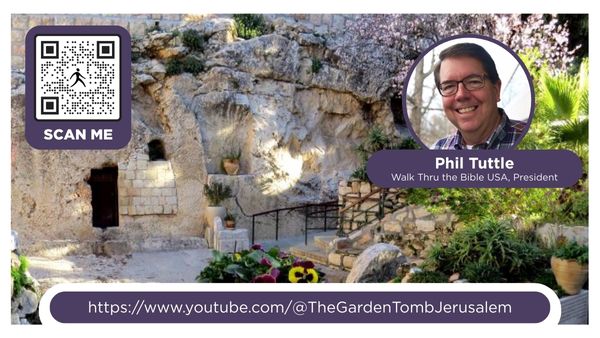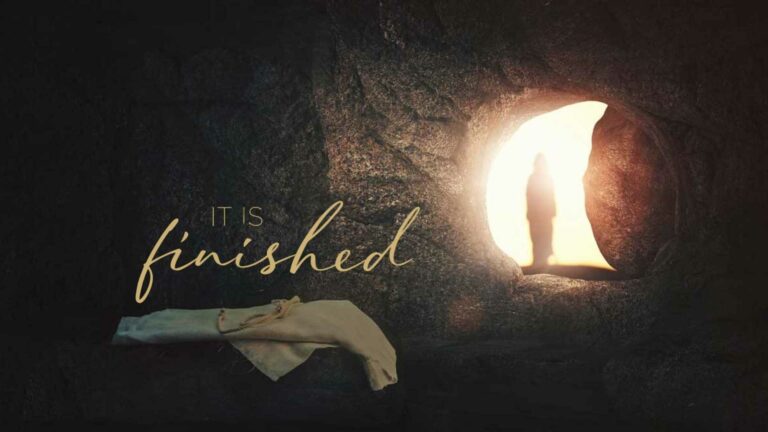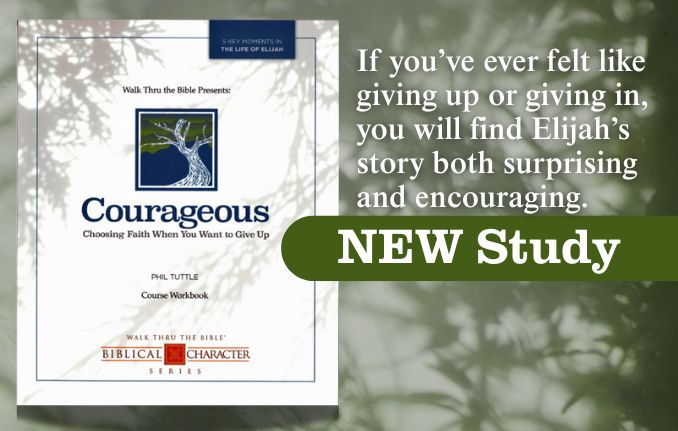Recently, I was watching a BBC news broadcast on the horrible tragedy that occurred in Uvalde, Texas. For his opening line, the newscaster expressed what we’ve all been thinking: “Well, it’s happened again in America.”
I’m sure most Americans have been spending a lot of time thinking about the innumerable tragedies facing our nation. To me, what exacerbates the horrors of these events is the way we never actually seem to deal with the problems that cause them. We discuss them for a few weeks, break them down into talking points in order to support our own agendas and opinions, argue, and then move on to whatever crisis comes next. All that time, nothing is ever done about the underlying brokenness.
There is so much in our world and in our own lives that is broken, fractured, desperately in need of reconnection. This isn’t new. Ever since Adam and Eve disobeyed God in the Garden of Eden, humanity has lived in a place of brokenness. However, this was not God’s design. In His original creation, all things were connected. Adam and Eve were in prime physical condition, never suffering from the sickness or pain. They were also unbothered by the stress, anxiety, and emotional turmoil we fight every day. Most importantly, they were perfectly connected to God. They walked with Him in the evening, communicating openly and honestly with no sin to hinder their relationship. Spiritually, emotionally, and physically, Adam and Eve were unbroken.
And then they fell. Everything changed. All of their connections were severed. Their once perfect bodies began to decline and would eventually die. Immediately following their sin, we see them experience fear, anger, blame, and dishonesty when they had previously only known truth, love, and joy. Even their relationship with nature was now one of struggle, with each thorn and weed serving as a consequence of their disobedience.
But worst of all, their relationship with God was broken. No longer could they enjoy the evening walks by His side, the sound of His voice in their ears, the feeling of His physical presence. The veil was put in place. They were separated from their Father.
This is the world we live in today, totally shattered by sin. In the wake of the tragedies we’ve been experiencing recently, this brokenness can seem so overwhelming that we don’t see a reason to get out of bed in the morning, hopeless in the face mankind’s sin and depravity.
However, we still have reason to rejoice, for our hope is not in the first Adam. In 1 Corinthians 15:45, Paul tells us about a second Adam, saying, “Thus it is written, ‘The first Adam became a living being’; the last Adam became a life-giving spirit.” This last Adam is a man named Jesus Christ, and He came to mend all that is broken, to reconnect us to God.
What did Christ, the Second Adam, do for us? He took upon Himself all of our sins. Isaiah 53:5 says, “He was pierced for our transgressions; he was crushed for our iniquities.” Though He was sinless, He sacrificed Himself so that we could be saved from hell. This is the story of the Gospel, the crux of our faith. We can never overstate the importance of these words.
However, the second half of verse 5 is sometimes overlooked, and it tells another vital part of this story: “Upon him was the chastisement that brought us peace, and with his wounds we are healed.” Jesus died for our sins, but He also died to bring us peace and healing from our pain and suffering. He took on the totality of our brokenness and offers redemption for it all.
Think about our many areas of disconnectedness. Jesus experienced each one of them. On the cross, He endured physical torment few can imagine. He knows the pain of a broken body. In the garden of Gethsemane, we see Him grapple with fear, anxiety, and sadness. He knew what was before Him, and His agony was so great that He began to sweat drops of blood. Relationally, Jesus knew the deep hurt of rejection and betrayal. John 1:11 says, “He came to his own, and his own people did not receive him.” Throughout His ministry, Jesus was persecuted by the very people he came to save, and in His final hours, His closest followers abandoned Him.
And even though Jesus is the Son of God, though He is Himself fully God, He also knows what it means to be separated from His Father. As He hung on the cross and took on our sin, Jesus cried out, “My God, my God, why have you forsaken me?” (Matthew 27:46). His connection to God the Father was broken. Every awful effect of sin rested upon Him, our blameless sacrifice.
But the story doesn’t end there. Jesus didn’t just experience our brokenness; He repairs it. He is making all things new. This work will be complete upon our arrival in heaven, when we will receive glorified bodies and be free from all sin. However, His ministry of re-creation has already begun. He’s at work right now reconnecting us—physically, emotionally, relationally, and spiritually. Yes, our bodies will continue to decline on this earth, but Jesus is still our healer right now. We can trust Him with our physical health. Yes, our relationships will always suffer because of sin, but as we continue on our process of sanctification and learn to love people the way Jesus did, we will find that He miraculously restores relationships we thought were broken beyond repair. Yes, we will suffer emotional crises—grief at the loss of a loved one, betrayal at the hands of a trusted friend, disappointment in the choice of an adult child, and more. But Jesus can heal our emotional wounds. These works of sanctification are like down payments, preview pictures, first fruits of the ultimate reconnection He has in store for us.
God’s Spirit empowers us to begin experiencing now the reconciliation that will be made full in eternity.
If you are feeling broken right now, remember that Jesus came not only to save us, but also to heal us. Talk to Him about your broken places. Ask Him for restoration. Remember, He loves you, and we don’t have to wait for Heaven to experience that love. It is present and active right now, more than we can possibly understand. He wants nothing more than to reconnect us to Himself.
***
by Rich Leland, Walk Thru the Bible’s VP for International



